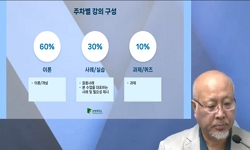본 연구는 그 동안 한국에서 시행되고 있는 저출산 관련 주요 정책의 효과성에 대한 분석을 시도하고자 한다. 이를 위해 저출산 관련 시책에 대한 인지도와 경험도를 검토하였으며, 이러한 ...
http://chineseinput.net/에서 pinyin(병음)방식으로 중국어를 변환할 수 있습니다.
변환된 중국어를 복사하여 사용하시면 됩니다.
- 中文 을 입력하시려면 zhongwen을 입력하시고 space를누르시면됩니다.
- 北京 을 입력하시려면 beijing을 입력하시고 space를 누르시면 됩니다.
https://www.riss.kr/link?id=A60112200
- 저자
- 발행기관
- 학술지명
- 권호사항
-
발행연도
2012
-
작성언어
Korean
- 주제어
-
등재정보
KCI등재
-
자료형태
학술저널
-
수록면
31-52(22쪽)
-
KCI 피인용횟수
48
- 제공처
- 소장기관
-
0
상세조회 -
0
다운로드
부가정보
국문 초록 (Abstract)
본 연구는 그 동안 한국에서 시행되고 있는 저출산 관련 주요 정책의 효과성에 대한 분석을 시도하고자 한다. 이를 위해 저출산 관련 시책에 대한 인지도와 경험도를 검토하였으며, 이러한 인지도와 경험도가 자녀의 출산계획에 미치는 영향을 분석하였다. 분석 결과 현존 자녀수를 고려하지 않을 경우 경제적 지원 정책과 양성평등 문화조성에 대한 인지도는 출산계획의 가능성을 높이는 것으로 나타났다. 그러나 이러한 결과는 현존 자녀수별로 분석할 경우 다르게 나타난다. 즉 무자녀 기혼여성들의 경우 저출산 관련 대책들에 따른 자녀출산계획의 차이는 없는 것으로 나타난다. 1자녀 기혼여성의 저출산 관련 지원정책에 대한 인지도가 추가출산계획에 미치는 영향도 모두 통계적으로 유의하지 않은 것으로 나타난다. 2자녀 여성의 경우에도, 저출산 정책에 대한 인지도가 추가출산계획에 미치는 영향은 유의하지 않은 것으로 나타났다. 이러한 결과는 저출산 정책의 이용도의 경우에도 동일한 패턴으로 나타난다. 즉 현존 자녀수를 고려하지 않을 경우 경제적 지원, 일 가정 양립 지원, 양성평등 문화조성 등은 출산계획에 통계적으로 유의한 영향을 주는 것으로 나타난다, 그러나 현존 자녀수별로 분석을 진행할 경우 이러한 변수들의 통계적인 유의성은 사라져 저출산 정책의 이용경험은 모두 출산계획에 유의한 영향을 주지 않는 것으로 나타났다. 이러한 결과는 저출산 정책을 수리할 때 자녀수에 대한 고려가 필수적임을 보여주는 것이다. 이와 함께 저출산 관련 지원정책의 효과가 뚜렷하게 나타나기 위해서는 보다 실질적이고 체계적인 저출산 대책이 지속적으로 추진되어야 한다는 점을 반영한 것으로 보인다.
다국어 초록 (Multilingual Abstract)
The purpose of this study is to analyze the effectiveness of policies in response to low fertility in Korea. Using a recent nationwide survey on marriage and fertility, this study analyzes the effect of low fertility policies on plan of further birth ...
The purpose of this study is to analyze the effectiveness of policies in response to low fertility in Korea. Using a recent nationwide survey on marriage and fertility, this study analyzes the effect of low fertility policies on plan of further birth among young married women according to the number of their children. Awareness of polices in response to low fertility is relatively high, showing the great differences among policy measures. In contrast, the degree of polices in response to low fertility is very low. ranging from 2.0% to 27.6%. The distribution of awareness and experience is different according to the number of children. The results of logistic regression analysis show that awareness of polices in response to low fertility such as economic support, promotion of equality of the sexes significantly affects on plan of further birth. However, this effects disappear when we apply parity specific approach. For example, the plan for first child is quite universal as no difference is found by their awareness of policies in response to low fertility. Similar results are found in married women having plan for second child and third child. With respect to the degree of experience of policies in response to low fertility, the results show that economic support, work-family coexistence, and promotion of equality of the sexes significantly affects the plan of further birth. Like awareness of policies in response to low fertility, these effects disappear as we apply parity specific approach. The results indicate that the effect of policies in response to low fertility differs by the current number of children. Thus, consideration of such difference would help us deepen our understanding of fertility behaviors and polices in response to low fertility.
목차 (Table of Contents)
- I. 머리말
- II. 저출산 정책의 효과성에 대한 선행연구
- III. 연구방법
- IV. 분석결과
- V. 맺음말
- I. 머리말
- II. 저출산 정책의 효과성에 대한 선행연구
- III. 연구방법
- IV. 분석결과
- V. 맺음말
- 〈참고문헌〉
참고문헌 (Reference)
1 정혜은, "취업여부에 따른 기혼여성의 둘째자녀 출산의도" 한국인구학회 31 (31): 147-164, 2008
2 국회예산정책처, "정부 저출산정책 평가" 국회예산정책처
3 이삼식, "저출산정책 효과성 평가 연구" 한국보건사회 연구원. 2010
4 정성호, "저출산에 관한 이론적 접근" 한국인구학회 32 (32): 161-183, 2009
5 오영희, "저출산고령사회대책의 추진실태와 효율화방안 연구" 한국보건사회연구원 2008
6 김승권, "저출산·고령화 대책의 미비점"
7 보건복지부, "저출산·고령사회 본격 대비를 위한 제2차 기본계획 확 정"
8 유계숙, "저출산 정책의 효과에 관한 연구: 2007년 출산을 중심으로" 한국가족관계학회 14 (14): 169-189, 2009
9 김효순, "일-가족요인, 가족가치관, 출산계획의도에 관한 연구" 25-45, 2010
1 정혜은, "취업여부에 따른 기혼여성의 둘째자녀 출산의도" 한국인구학회 31 (31): 147-164, 2008
2 국회예산정책처, "정부 저출산정책 평가" 국회예산정책처
3 이삼식, "저출산정책 효과성 평가 연구" 한국보건사회 연구원. 2010
4 정성호, "저출산에 관한 이론적 접근" 한국인구학회 32 (32): 161-183, 2009
5 오영희, "저출산고령사회대책의 추진실태와 효율화방안 연구" 한국보건사회연구원 2008
6 김승권, "저출산·고령화 대책의 미비점"
7 보건복지부, "저출산·고령사회 본격 대비를 위한 제2차 기본계획 확 정"
8 유계숙, "저출산 정책의 효과에 관한 연구: 2007년 출산을 중심으로" 한국가족관계학회 14 (14): 169-189, 2009
9 김효순, "일-가족요인, 가족가치관, 출산계획의도에 관한 연구" 25-45, 2010
10 오정균, "우리나라 출산장려정책의 개선방안에 관한 연구" 서울시립대학교 도시과학대학원 2007
11 은기수, "외국 저출산 대응정책 효과성 분석 및 우리나라 도입방안 연구" 보건복지부, 서울대 국제대학원. 2005
12 이명진, "여성의 출산계획 결정요인과 그 사회적 함의" 25-45, 2010
13 전혜정, "양육부담경감을 위한 다자녀 우대 정책 활성화 방안" 한국보건사회연구원. 2009
14 공선희, "서울시 저출산정책 발전방안 연구" 서울시여 성가족재단. 2008
15 박수미, "둘째 출산 계획의 결정요인과 가족내 성 형평성" 한국인구학회 31 (31): 55-73, 2008
16 김정석, "기혼여성의 출산아수별 추가출산계획" 30 (30): 97-116, 2007
17 이성용, "경제위기와 저출산" 한국인구학회 29 (29): 111-137, 2006
18 Gauthier, Anne H., "The impact of family policies on fertility in industrialized countries: a review of the literature" 26 : 323-346, 2007
19 Sleebos, "Low fertility in OECD countries: Facts and policy responses" OECD Social Employment and Migration 2003
20 Grant J., "Low fertility and population ageing: Causes, consequences, and policy options" RAND Europe 2004
21 Mitchell, D., "Declining fertility: Intentions, attitudes and aspirations" 43 (43): 23-44, 2007
동일학술지(권/호) 다른 논문
-
경제 위기 전후 북한 주민의 사망률 동태의 특성과 변화
- 한국인구학회
- 박경숙(Keong-Suk Park)
- 2012
- KCI등재
-
- 한국인구학회
- 김진영(Jin-Young Kim)
- 2012
- KCI등재
-
- 한국인구학회
- 김두섭(Doo-Sub Kim)
- 2012
- KCI등재
-
- 한국인구학회
- 손정연(Son, Jeong-yeon)
- 2012
- KCI등재
분석정보
인용정보 인용지수 설명보기
학술지 이력
| 연월일 | 이력구분 | 이력상세 | 등재구분 |
|---|---|---|---|
| 2027 | 평가예정 | 재인증평가 신청대상 (재인증) | |
| 2021-01-01 | 평가 | 등재학술지 유지 (재인증) |  |
| 2018-01-01 | 평가 | 등재학술지 유지 (등재유지) |  |
| 2015-01-01 | 평가 | 등재학술지 유지 (등재유지) |  |
| 2013-01-01 | 평가 | 등재 1차 FAIL (등재유지) |  |
| 2010-01-01 | 평가 | 등재학술지 유지 (등재유지) |  |
| 2008-01-01 | 평가 | 등재 1차 FAIL (등재유지) |  |
| 2006-01-01 | 평가 | 등재학술지 유지 (등재유지) |  |
| 2004-01-01 | 평가 | 등재학술지 유지 (등재유지) |  |
| 2001-07-01 | 평가 | 등재학술지 선정 (등재후보2차) |  |
| 1999-01-01 | 평가 | 등재후보학술지 선정 (신규평가) |  |
학술지 인용정보
| 기준연도 | WOS-KCI 통합IF(2년) | KCIF(2년) | KCIF(3년) |
|---|---|---|---|
| 2016 | 1.34 | 1.34 | 1.65 |
| KCIF(4년) | KCIF(5년) | 중심성지수(3년) | 즉시성지수 |
| 1.86 | 2.07 | 2.564 | 0.4 |




 ScienceON
ScienceON DBpia
DBpia







